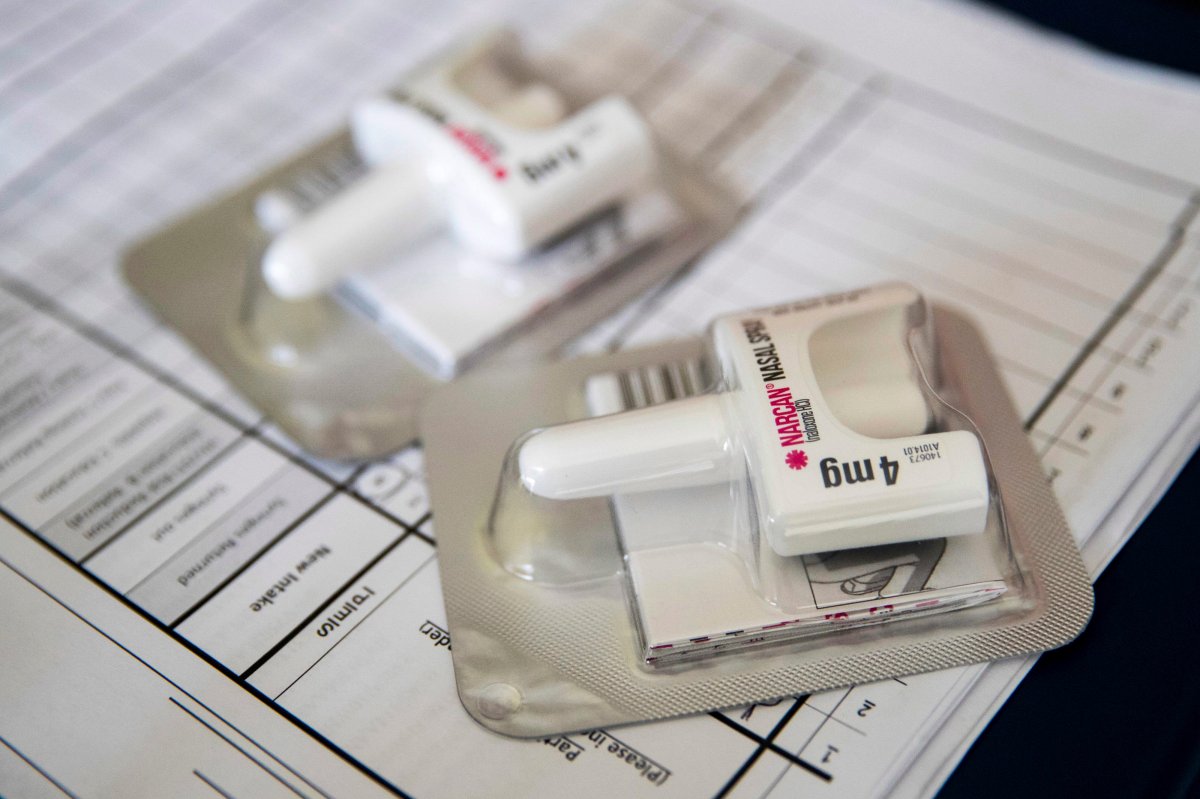Some hospitals in Simcoe County and Muskoka are using a new tool to help support people with opioid misuse problems and those who have been brought to their local emergency room as a result of an opioid overdose.

About a month ago, clinicians at Orillia Soldiers’ Memorial Hospital (OSMH) started using two order sets, standardized checklists for health-care providers, for patients who’ve overdosed on an opioid and for those experiencing withdrawal symptoms.
The overdose order set, developed by Think Research and customized for each hospital, streamlines the process of treating patients for clinicians and looks at planning a person’s discharge from the hospital, as well as connecting them to other community supports, such as rapid access addiction medicine (RAAM) clinics.
“When carfentanil came on the scene, we were having, all of sudden, to use doses of Narcan that we were not typically familiar with, like much, much higher doses were required,” Dr. Don Sangster, the emergency medicine quality and trainee liaison at OSMH, told Global News.
“You had to do this quickly and scale up the doses quickly to ensure that patient could be resuscitated or (to) give it your best shot.”
Narcan — the brand name for naloxone — is a medication that counters the effects of an opioid overdose.

Sangster said the order set helps ER clinicians who are responding to an opioid overdose all be on the same page.
“It also helps keep us focused on timelines about how quickly we need to scale up the dosing of the medications,” he said.
OSMH is not the only hospital in the Simcoe Muskoka region that’s using the new tool to help people with opioid misuse issues. Muskoka Algonquin Healthcare and Collingwood General and Marine Hospital are also using the order set, according to Think Research.
For the first 10 months of 2020, preliminary data shows there were 109 confirmed and probable opioid-related deaths in the Simcoe Muskoka region, which was 62 per cent higher than the average of 67 deaths from January to September for the previous three years, according to local public health.
- Naloxone-resistant street drug linked to 9 deaths in Eastern Canada seized in Alberta
- ‘She gets to be 10’: Ontario child’s heart donated to girl the same age
- Buzz kill? Gen Z less interested in coffee than older Canadians, survey shows
- Bird flu risk to humans an ‘enormous concern,’ WHO says. Here’s what to know
Opioid poisoning ER visits in the region were also down in the first half of 2020 compared to the same months in 2019, although visits from July to December were higher when compared to the same months for 2019, the Simcoe Muskoka District Health Unit has said.
“The new order set we customized for our area and for our departments just over a year ago. Part of the motivation to use an order set was to standardize best practice and best care,” said Dr. John Simpson, the emergency director and chief of emergency medicine at Muskoka Algonquin Healthcare.
“We were able to include what our local resources are, phone numbers directly for that, patient handouts, a reminder that we can give a naloxone kit to a person or offer it to them, if they’re interested in having that to take home with them.”
What prompted Muskoka Algonquin Healthcare to begin using order sets for patients with opioid misuse problems about a year ago was due to the fact that the hospital was seeing more overdoses.
“We were also seeing … in the Simcoe Muskoka area, more use of long-acting fentanyl, long-acting opioids,” Simpson said.
Kirsten Lewis, the senior vice-president of clinical research and development at Think Research, said the order set helps ER clinicians recognize, test and confirm the problem before they start to intervene early.
“That’s particularly important with opioid overdoses because the longer you wait to intervene, the more complications a person who’s had an overdose can have,” Lewis said.
“We customized the order sets so that doctors in each hospital know exactly what addiction and support services are available nearby.”
Lewis said the order set can act as an “instruction manual” for the hospital team, which helps all staff anticipate the needs of a patient who’s experienced an opioid overdose.
“In some cases, (they) can get organized ahead of time, which again, reduces barriers and length of stay potentially in the emergency department and allows for early treatment, which can reduce complications,” she added.
“The overall goal when people are acutely ill is to reduce the number of fatal overdoses, so using this is really going to provide people with better access to fast care.”
Forty-three hospitals in Ontario have started using the new opioid tool, while 141 hospitals across Canada are using the order set.





Comments